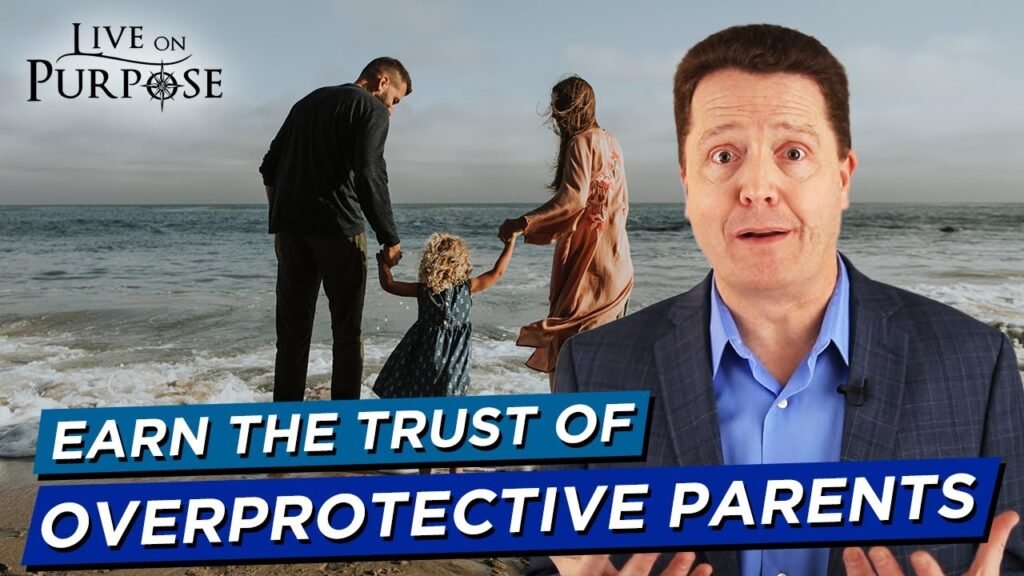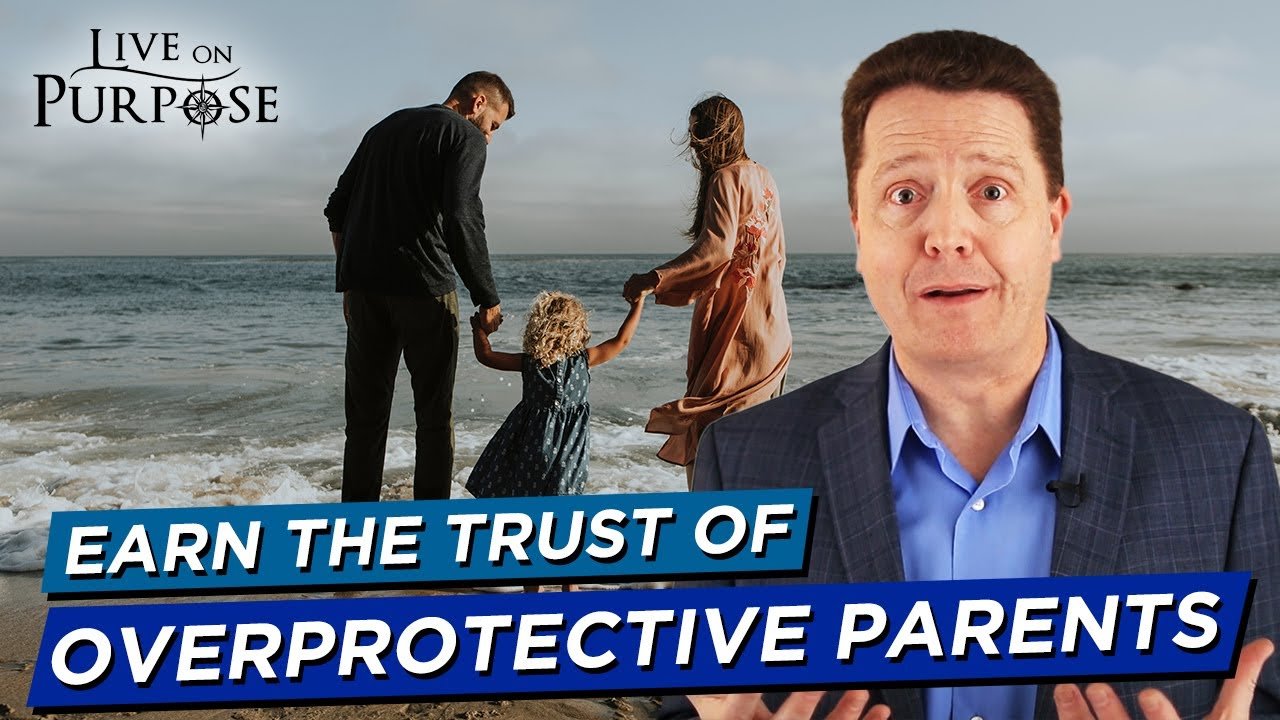Are your parents overprotective of you? Whether you’re young or an adult, this video is for you. In “How to Convince Overprotective Parents: Understanding Parenting Psychology,” the speaker delves into the psychology of control and maturity. They explain that parents want to see their children mature, not control their lives. By understanding the stages of maturity, from selfish and demanding to cooperative and responsible, viewers can learn how to convince their parents to back off on control. The speaker advises demonstrating genuine maturity, such as helping with chores without being asked, in order to convince parents to trust and give more freedom. Be sure to share this video with others who can benefit from the information.

Understanding Parenting Psychology
Parenting is a complex and multifaceted journey that involves understanding the psychology of both children and parents. It is important for children to also understand their parents’ perspective in order to build a healthy and trusting relationship. By gaining insight into parenting psychology, we can navigate overprotective behaviors and work towards resolving conflicts in a more empathetic and understanding manner.
The importance of understanding parents’ perspective
When dealing with overprotective parents, it is crucial to consider their perspective and underlying concerns. Many parents have fears and anxieties about their child’s safety and well-being, which can lead to controlling behaviors. By empathizing with their worries, we can approach conflicts with a more balanced and understanding mindset.
Common fears and concerns of overprotective parents
Overprotective parents often have valid concerns about their children’s safety and future. They may worry about their child’s ability to navigate the world independently or make responsible decisions. Understanding these fears can help us address them in a supportive and reassuring way, rather than dismissing them as irrational.
The role of parenting styles in overprotective behavior
Parenting styles greatly influence overprotective behavior. Authoritarian parents, who enforce strict rules and harsh punishments, may be more inclined to exhibit overprotective tendencies. On the other hand, helicopter parents, who excessively hover over their children and micromanage their lives, also contribute to an overprotective environment. Recognizing the influence of parenting styles can help us understand the root causes of overprotective behavior.
The Psychology of Control and Maturity
To better understand overprotective behavior, it is important to explore the psychology behind control and maturity. Control refers to the level of autonomy and independence individuals have over their own lives, while maturity refers to the level of emotional and cognitive development. These two concepts intertwine within parenting psychology, shaping how parents perceive and manage their children’s behavior.
Exploring the psychology behind overprotective behavior
Overprotective behavior often stems from a desire to maintain a sense of control and protect children from potential harm. Parents may project their own fears and anxieties onto their children, resulting in excessive monitoring and restrictions. By examining the psychological factors driving this behavior, we can better address the underlying concerns and work towards a healthier dynamic.
Understanding the concept of maturity
Maturity encompasses emotional, social, and cognitive development. It involves the ability to make responsible decisions, empathize with others, and navigate challenges independently. Understanding the components of maturity can help us gauge our own growth and communicate effectively with our parents.
Linking control and maturity in parenting psychology
Control and maturity are closely intertwined within parenting psychology. As children grow and develop, parents should gradually relinquish control and allow them to take more responsibility for their own lives. However, if parents perceive a lack of maturity in their children, they may continue to exert control in an attempt to ensure their safety and success. Recognizing this connection can help facilitate open discussions and foster a more balanced approach to parenting.
The Three Stages of Maturity
To better understand the progression of maturity, it is helpful to divide it into three stages. Each stage represents different behaviors and characteristics commonly observed in individuals at various points in their development.
Stage 1: Selfish and demanding behavior
At stage 1, individuals exhibit selfish and self-centered tendencies. They prioritize their own needs and desires, often demanding immediate gratification. This stage is characterized by a sense of entitlement and a lack of empathy towards others.
Stage 2: Cooperative behavior
Stage 2 marks a shift towards more cooperative behavior. Individuals at this stage understand the importance of compromise and strive for win-win solutions. They actively seek harmony and prefer to avoid conflict, displaying a greater level of empathy towards others.
Stage 3: Responsible behavior
Stage 3 represents the highest level of maturity, marked by a strong sense of responsibility and ethical decision-making. Individuals at this stage prioritize serving others, display a genuine concern for others’ well-being, and adhere to their own set of morals and values. Empathy is a key characteristic of this stage, as individuals actively understand and care about the feelings of others.
Understanding Parents’ Desires
Contrary to popular belief, most parents do not seek control over their children’s lives. Rather, their primary desire is to witness their child’s maturity and independence. By recognizing and addressing their underlying desires, we can effectively communicate with our parents and work towards resolving conflicts.
Recognizing that parents want maturity, not control
Parents ultimately desire to see their children mature and grow into responsible adults. Understanding this fundamental desire can help us approach conflicts from a more empathetic and understanding perspective.
Why overprotective parents may prioritize control
Although the ultimate goal for parents is to witness their child’s maturity, overprotective behavior may arise from various factors. These can include unresolved fears and anxieties, a desire to protect their child from potential harm, or a belief that controlling behavior will lead to a better outcome. By acknowledging these motivations, we can address them more effectively.
The importance of open communication to resolve conflicts
Open communication is vital in resolving conflicts and creating a more understanding environment. Both children and parents should actively listen to one another, express their concerns, and strive for mutually beneficial solutions. Establishing a foundation of open communication allows for a greater understanding of each other’s needs and desires.
Convincing Overprotective Parents Through Maturity
To convince overprotective parents to ease up on control, it is essential to demonstrate genuine maturity in daily activities. Showing consistency in exhibiting responsible behavior and taking initiative can gradually help parents recognize our growth and trust in our ability to make responsible decisions.
Showing genuine maturity in daily activities
Consistency is key when it comes to showcasing maturity. By consistently exhibiting responsible behavior and taking initiative without being prompted, we can demonstrate our readiness for greater autonomy.
Examples of how to demonstrate maturity to parents
Simple actions, such as taking responsibility for household chores, showing consideration for others, and making thoughtful decisions, can significantly impact how parents perceive our maturity. Each opportunity to showcase responsible behavior allows parents to witness our growth and strengthens their trust in us.
Recognizing and addressing your own weaknesses
Personal growth requires acknowledging and addressing our own weaknesses. By actively seeking opportunities for self-improvement, we display maturity and a commitment to personal development. Parents are more likely to trust and support us when they see us taking initiative to address our own shortcomings.
The Power of Sharing Information
To spread awareness about the importance of understanding parenting psychology, it is vital to share this video with others who could benefit from its insights. By encouraging others to watch and learn, we contribute to a more understanding and empathetic society.
Encouraging viewers to share the video with others
By sharing this video with friends, family, and peers, we can broaden the reach of its message and increase awareness about parenting psychology. Encouraging others to watch and engage with the content allows for more meaningful discussions and promotes positive change.
Identifying individuals who could benefit from understanding parenting psychology
Parenting psychology is relevant to individuals of all ages and backgrounds. Identifying those who may benefit from a deeper understanding of this topic, such as parents, caregivers, or individuals struggling with overprotective behavior, can help target the dissemination of this valuable information.
Spreading awareness for a more understanding and empathetic society
By actively participating in spreading awareness about parenting psychology, we contribute to the creation of a more understanding and empathetic society. When we engage in open discussions, challenge misconceptions, and promote a balanced approach to parenting, we foster healthier relationships and support personal growth.
In conclusion, understanding parenting psychology is essential when addressing overprotective behaviors. By recognizing parents’ desires for maturity and demonstrating genuine growth and responsibility, we can encourage parents to ease up on control. Through open communication, empathy, and a commitment to personal growth, we can build a healthier and more balanced relationship with our parents. By spreading awareness about parenting psychology, we contribute to a more understanding and empathetic society. Let us strive towards positive change and foster healthier dynamics between parents and children.

